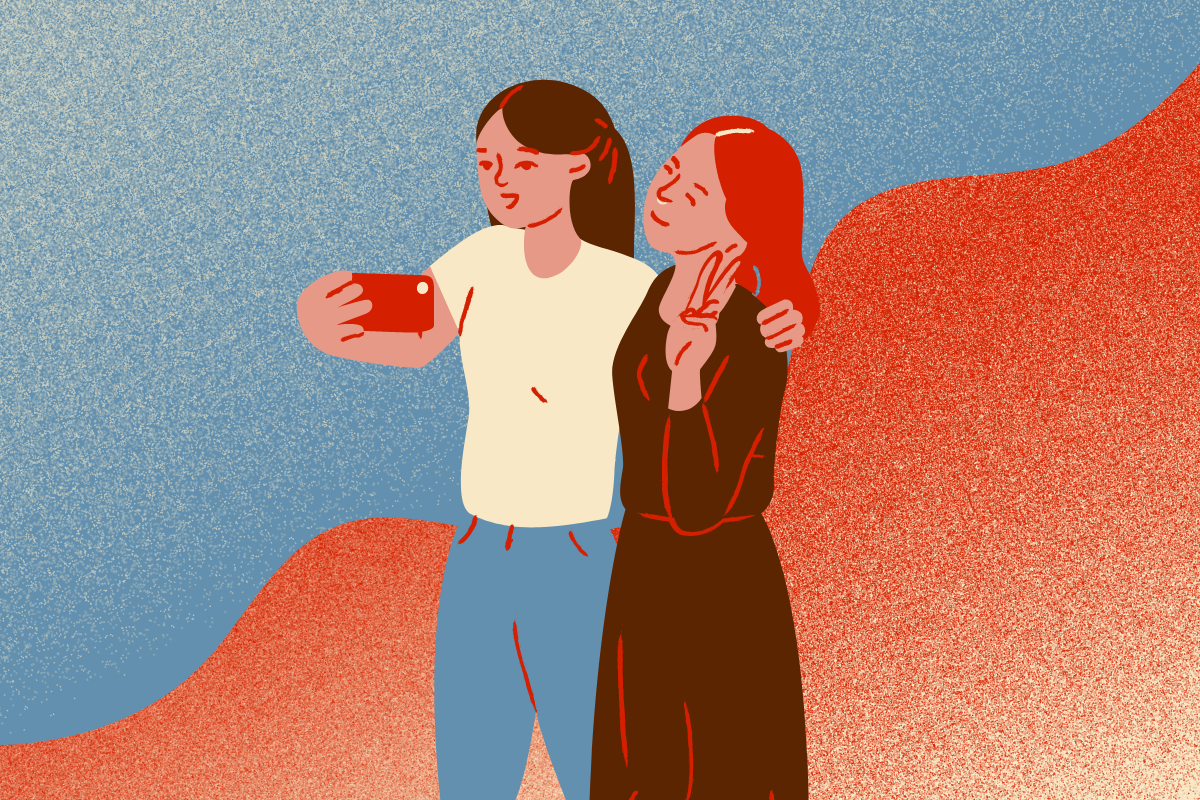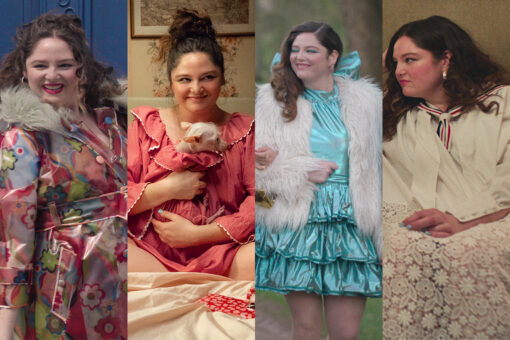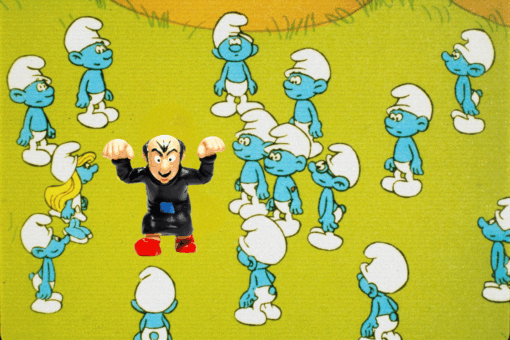I met Marlee on a snowy night in January of 2022, a time when I was deeply lonely and searching for community. A mutual friend had invited us both to their apartment for wine and painting, excitedly telling me that they knew Marlee and I would be fast friends. We instantly hit it off. We shared a love of musical theater, a passion for working with kids and a dark-but-upbeat-in-a-Gen-z-way sense of humor. Marlee’s easy smile and genuine warmth drew me in. My new friend had suddenly made the winter seem less bleak.
She seemed to me, at first, a walking contradiction. With her dyed red hair, septum piercing and ‘80s punk band t-shirts, I would not have expected her to express excitement at finding creative new tzniut — modest — outfits or to spout complex Yiddish phrases as if she had always spoken the language. I certainly did not expect that this joyfully queer, vocally left-wing, staunchly feminist new friend of mine would have such an ardent love for Orthodox Judaism. And I never would have expected that she would change my entire perception of what Orthodoxy — or any particular sect of Judaism — could look like.
Like me, Marlee had been raised in the egalitarian Conservative Jewish tradition. Like me, she had had a love/hate relationship with organized religion, especially throughout high school and college. Unlike me, however, her father became Hasidic during her teen years via Chabad, and Marlee had been welcomed into the community with open arms. In recent years, she had taken a job at a Chabad preschool and discovered that Orthodox Judaism offered a warmth and spirit that she hadn’t found in other Jewish spaces.
The first time she asked me to go with her to a Modern Orthodox synagogue, I was hesitant. I had been taught that Orthodoxy was regressive and puritanical, and that it was hostile toward queer people like myself. Imagine my surprise, then, when a rendition of “Eitz Chayim” as the ark closed brought me to tears. I had heard the tune a thousand times before, but never like this. At this synagogue, though the men and women sat separately, the women sang loudly and unabashedly, including the female rabbi. The mission of this particular congregation was to blend progressive values such as female leadership and LGBTQ+ inclusion with Orthodox Jewish traditions. I had never before felt such ruach — spirit — at a synagogue.
Over the next year, Marlee brought me along to countless Shabbat dinners, holiday parties and events for people in their 20s. At each of these, I met people that challenged my assumptions of what it meant to be Jewish. All of my new friends, each raised with different levels of observance, are questioning their own Jewish identities and how or if they want to practice Judaism as independent adults. One friend grew up Reform and is searching for a stronger connection to his ancestors. Another was raised in a Yeshivish community and is exploring how to be observant while engaging with the secular world. Yet another friend is in the process of converting to Judaism and is looking for her niche in the tribe. As these new friendships evolved, I began to question my own involvement in Jewish spaces. Why had I avoided them so heavily in high school and college? Which spaces had excluded me and which ones had made me feel welcome? Which practices did I want to carry with me into the future?
I have never agreed with the strong gender roles upheld by Orthodox traditions, specifically the exclusion of women from counting as part of minyans, reading from the Torah, or being ordained as clergy. I didn’t understand the rigid routines that seemed to consume the lives of Orthodox Jews, and I was perplexed by their chosen isolation from the wider world. Yet, when I allowed myself to be curious, I found that Orthodox communities had retained a passion that I had never felt in the Conservative synagogues of my youth. Furthermore, I discovered that “Orthodox” is an umbrella term that describes a diverse array of practices, many of which did not fit into my previous understanding.
In every circle I encountered, from Chabad to Modern Orthodoxy, there was a love for the Hebrew and Yiddish languages, for traditional Jewish music and for strong communities. I admire the pride they feel in performing mitzvahs. They help remind me that Judaism is not an archaic religion, but a living, breathing philosophy for a life filled with enthusiasm and meaning.
Aleeza Ben Shalom of “Jewish Matchmaking” acutely observes that there are 15 million Jews in the world and therefore, 15 million ways of being Jewish. If that is true, how could any individual, let alone entire sect of Judaism, be the same across the board?
Now, when someone asks me what kind of Jew I am, I hesitate to label myself. I don’t keep kosher or strictly observe Shabbat. I still strongly disagree with any tradition that upholds rigid, binary gender roles, is not fully egalitarian, and does not lovingly affirm queer people as their authentic selves. Yet, the best and most spiritual synagogue experiences I have had have been with Marlee at that Modern Orthodox shul. I have never felt such sincere welcome from strangers as I have at Chabad Shabbat dinners. My immersion in the different facets of the local Jewish community has led me to host my own Shabbat meals and re-examine my relationship to religion as a whole. I have discovered an eagerness for sharing Jewish traditions with younger generations.
The older I get, the more I realize that it is dangerous to identify completely and unquestioningly with any ideology — just as it is dangerous to completely write off a particular sect or community. It is up to the individual to decide what they believe and what traditions they choose to practice. I believe that a Jew is a Jew is a Jew, and that there is a place in Judaism for all of us if we want it. Sometimes it takes a while for us to find that place and sometimes we have to make it ourselves.
As a resident of a Moishe House and a community organizer, my friend Marlee has devoted her time to carving out that space for herself and her loved ones. She is the kind of person that effortlessly makes friends, that can connect with almost anybody. She embraces Judaism with all of its contradictions. I am forever grateful to her for passing me the tools.



